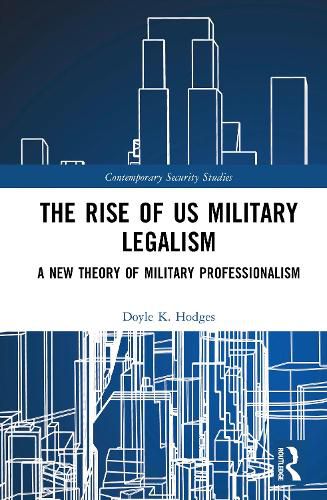Readings Newsletter
Become a Readings Member to make your shopping experience even easier.
Sign in or sign up for free!
You’re not far away from qualifying for FREE standard shipping within Australia
You’ve qualified for FREE standard shipping within Australia
The cart is loading…






This book introduces and explains the concept of military legalism, and analyzes its importance for US military decision-making.
The book documents a change over the past 50 years in the way in which US military officers make decisions about using force, which it calls 'military legalism'. Rather than relying solely on professional military judgment and professional military ethics, officers are increasingly using legal norms and reasoning to justify their choices. This book explores how widespread this practice has become, explains why it has emerged, and examines some of its implications. Using historical cases from World War II through the opening days of Operation Iraqi Freedom, the book traces changes in the way in which civilian policymakers have governed US military decisions about the use of force, and how the military has responded to these changes. While military legalism is normatively neither good nor bad, legalistic reasoning has been used to justify morally deficient policies, and a reliance on legal reasoning may have unanticipated and unexamined effects on the norms of civil-military relations.
This book will be of interest to students of law, military studies, ethics and International Relations.
$9.00 standard shipping within Australia
FREE standard shipping within Australia for orders over $100.00
Express & International shipping calculated at checkout
This book introduces and explains the concept of military legalism, and analyzes its importance for US military decision-making.
The book documents a change over the past 50 years in the way in which US military officers make decisions about using force, which it calls 'military legalism'. Rather than relying solely on professional military judgment and professional military ethics, officers are increasingly using legal norms and reasoning to justify their choices. This book explores how widespread this practice has become, explains why it has emerged, and examines some of its implications. Using historical cases from World War II through the opening days of Operation Iraqi Freedom, the book traces changes in the way in which civilian policymakers have governed US military decisions about the use of force, and how the military has responded to these changes. While military legalism is normatively neither good nor bad, legalistic reasoning has been used to justify morally deficient policies, and a reliance on legal reasoning may have unanticipated and unexamined effects on the norms of civil-military relations.
This book will be of interest to students of law, military studies, ethics and International Relations.